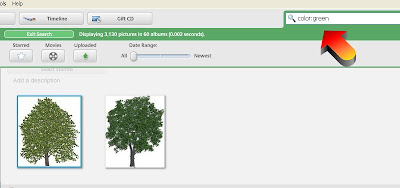I've been fascinated by the game of Census Whacking , and since I talk a lot on this blog about Google searches, I was curious to see if there would be anyone named Google in the census.
The search engine Google got its name from the word googol, the number 10 100, that is, the number 1 followed by one hundred zeros and was not named after any one's surname or family name.
The search engine Google got its name from the word googol, the number 10 100, that is, the number 1 followed by one hundred zeros and was not named after any one's surname or family name.
So I was a bit surprised to find Barney Google, age 20, pop up for the first time in the 1930 census, living as a boarder with the Bachelor family in Eli, Cherry county, NE.
At the time of the 1930 census, Barney Google was also the name of the of a very popular comic strip, so popular, in fact, that a song had been written about the cartoon character.
At the time of the 1930 census, Barney Google was also the name of the of a very popular comic strip, so popular, in fact, that a song had been written about the cartoon character.
Now, the "Barney Google" in the 1930 census was listed as 20 years old, born in Iowa, and whose parents had been born in Ireland. But this is the first Barney Google ever listed in the U.S. census of any year.
Now I know that doesn't prove that Barney Google wasn't his real name. His name certainly could have been misunderstood by the census taker. But I have to wonder if when the census taker came by the Bachelor farm in Nebraska if their boarder gave the name "Barney Google" as a joke. Or did he give the name as a way of hiding so his real identify would not be known? Or did the Bachelor family tell the census taker his name was Barney Google because they couldn't think of his real name? Did the census taker think he heard Barney Google when Barney really said something different? Did he think it was a great joke to play on the government? So many possibilities.
Which all goes to show that if you are looking for ancestors in the census, realize that people did give fake names for multiple reasons making them almost impossible to trace today. People had their names mis-recorded. I'd love to know the story behind Barney Google in the 1930 census.
Which all goes to show that if you are looking for ancestors in the census, realize that people did give fake names for multiple reasons making them almost impossible to trace today. People had their names mis-recorded. I'd love to know the story behind Barney Google in the 1930 census.
So if you are looking for a 20 year old farm laborer born in Iowa about 1910, who was probably either in hiding or had a sense of humor or whose name might have sounded like Barney Google to the census taker, whose parents were born in Ireland, check out "Barney Google" in Eli, Nebraska.
oh, yeah. And don't believe everything you read in the census.
No mention in the census whether or not he has goo-goo-goo-ga-ly eyes.
oh, yeah. And don't believe everything you read in the census.
No mention in the census whether or not he has goo-goo-goo-ga-ly eyes.





 Also, the Translate Dictionary does not use the Google spellchecker to remind you of spelling problems. I was surprised that Google Translate didn't find a translation for a word I entered, but closer scrutiny showed it was because I entered a typo and not that the dictionary was missing my word.
Also, the Translate Dictionary does not use the Google spellchecker to remind you of spelling problems. I was surprised that Google Translate didn't find a translation for a word I entered, but closer scrutiny showed it was because I entered a typo and not that the dictionary was missing my word.
